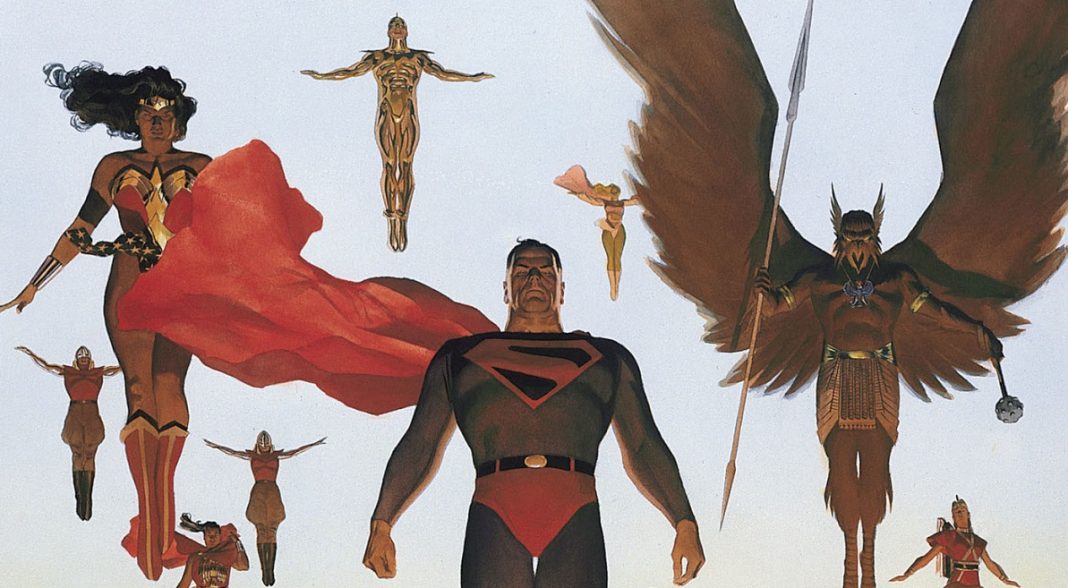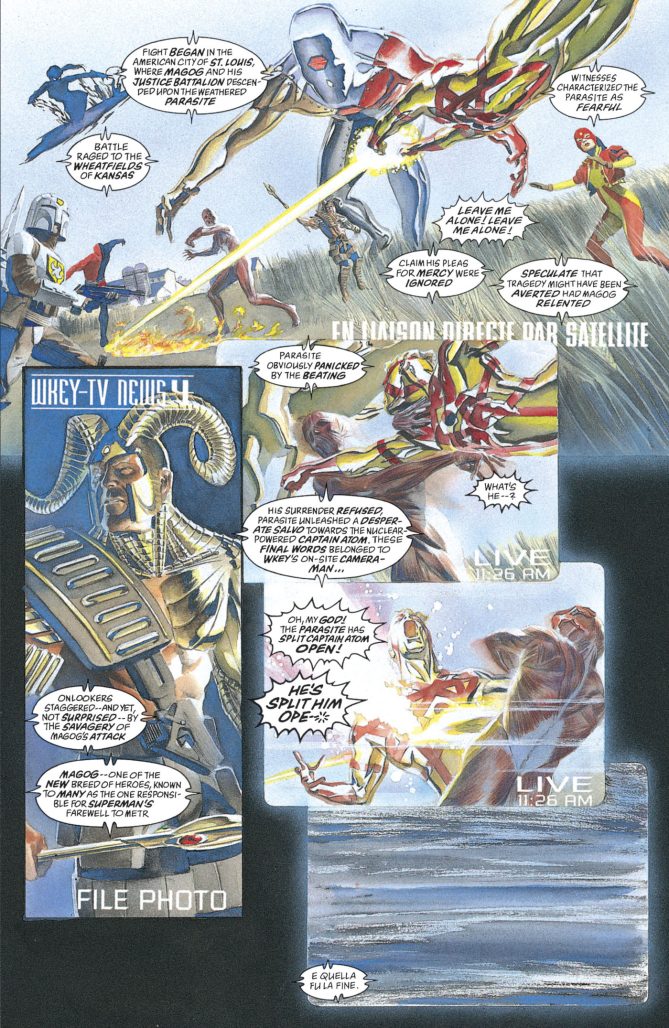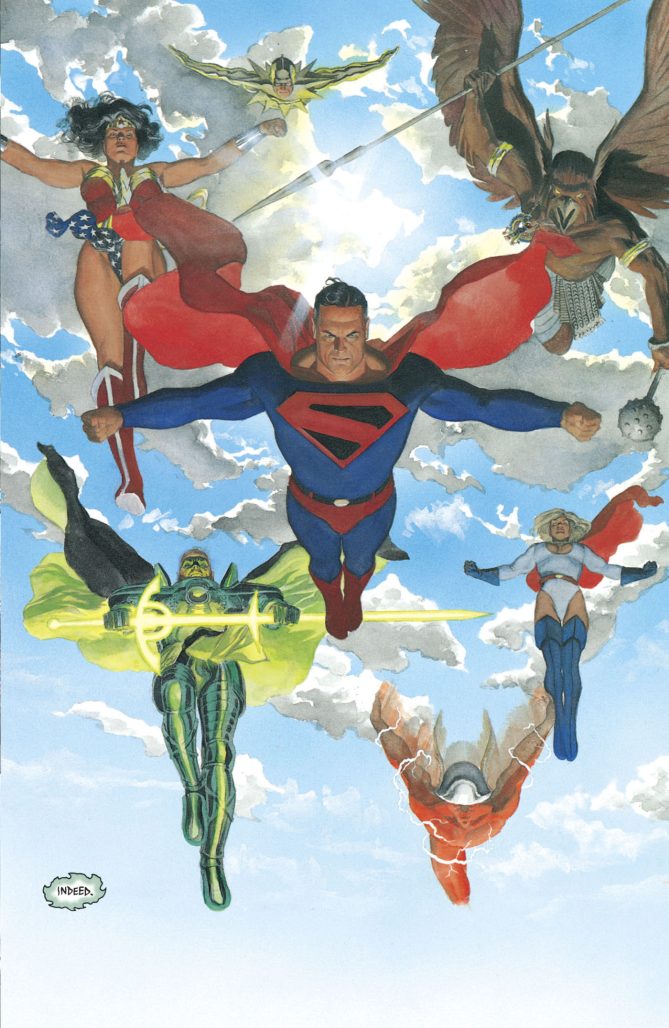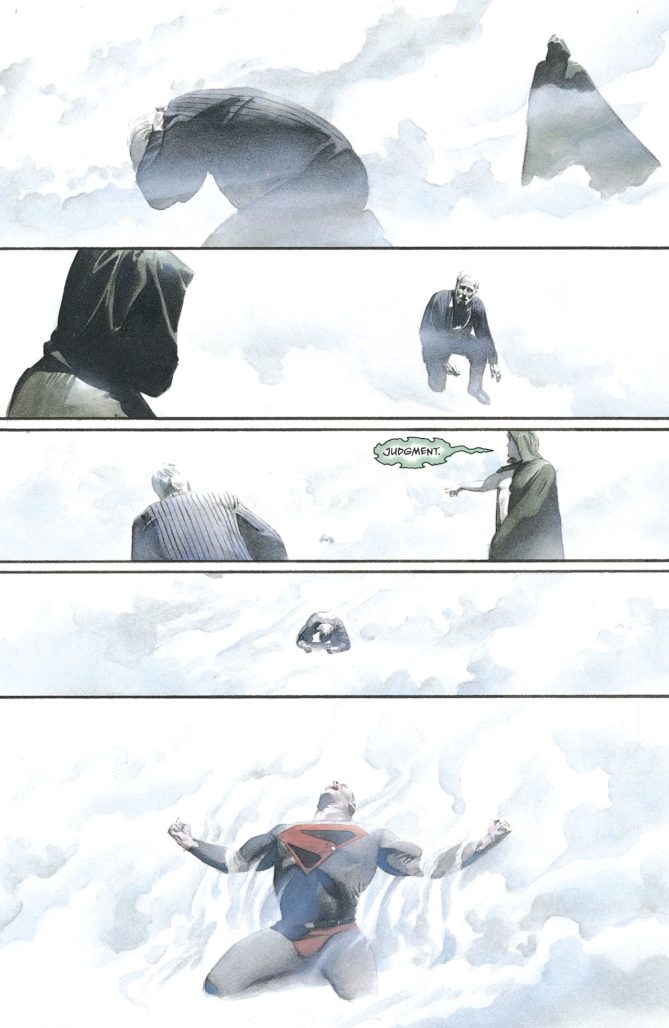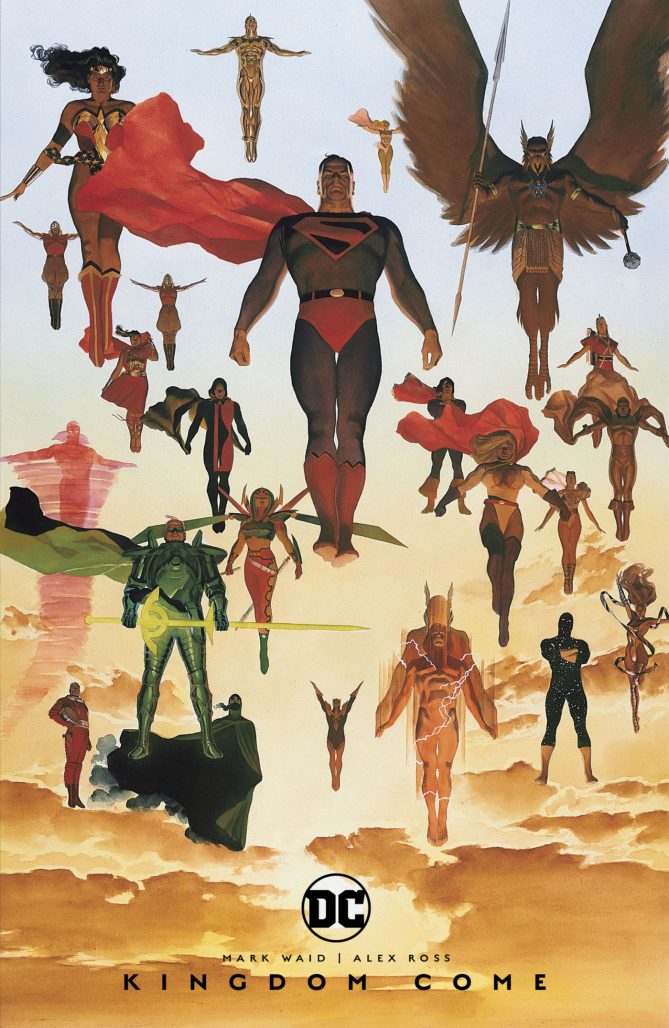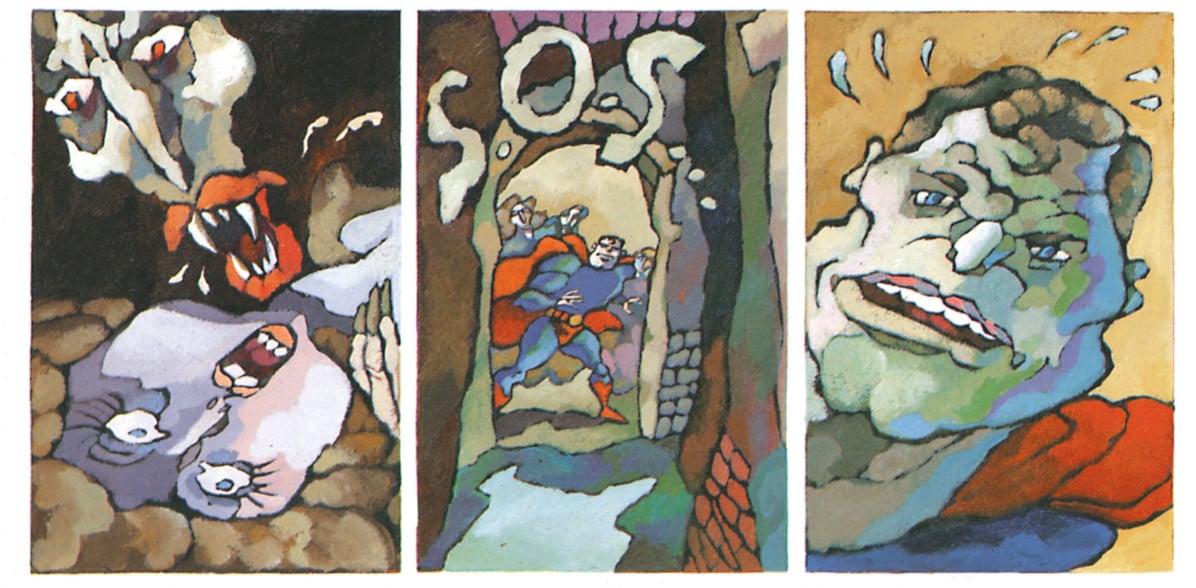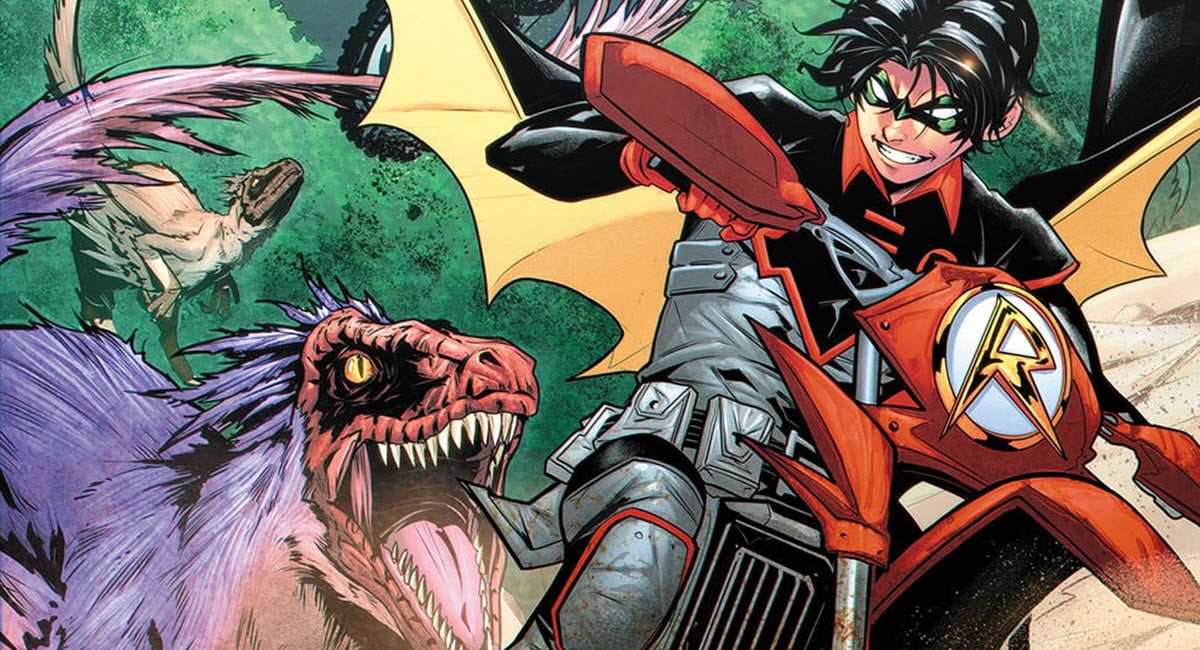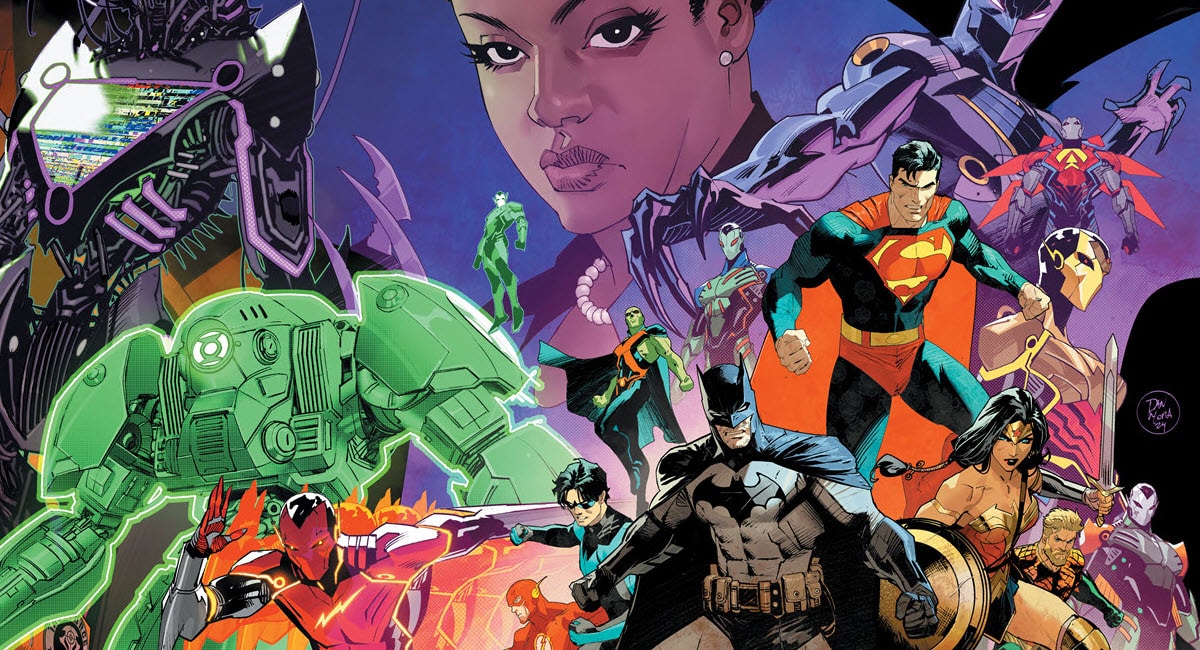When you think of nostalgia, of things that evoke nostalgia, you probably think in the straightforward application of it in direct reminiscence of things past. Of the halcyon days of childhood. Of favourite comics and cartoons. Of something like Marvels revisiting key moments of history through a new lens.
But there’s a flip side.
A future that makes you feel nostalgic for times past. A desire for things to go back to the way that you think they ought to be. That perhaps something has gone horribly wrong with the world. That’s kind of the outlook from what I consider to be a companion piece to Marvels, even though it was published by DC. The Elseworlds tale Kingdom Come.
“He swore he’d never forget the world they came from. He wanted them to be remembered. He wanted them to live again.”
Kingdom Come by Mark Waid, Alex Ross, and Todd Klein is the tale of an alternate future heading towards its end as heralded through the eyes of ordinary pastor given the gift of sight, Norman McCoy. The story follows McCoy and the Spectre as they bear witness to the possible end times as the old guard of superheroes have retired, leaving a new breed who kill and fight with reckless abandon.
There are layers and elements that you could read into the story. Context and subtext that may not have necessarily been intended by Waid and Ross, but still there. Like you could take it as a condemnation of the grim and gritty excesses that took over comics following seminal works of the ’80s like Watchmen and Dark Knight Returns. Not of the works themselves, don’t get me wrong, but of their dark legacy. It’s there in that the inciting incident of the primary tragedy in Kansas involves several of the original templates for the characters in Watchmen including Peacemaker and Captain Atom.
That there’s a longing for the simpler, four-colour fantasies the populated comics in their youth. A longing for that nostalgia. It’s fascinating even just to look at who the creators pick to be the future’s Green Lantern (although you need to remember in ’96 Hal Jordan was a baddie, soon to be dead) and The Flash, which characters had kids, who took on legacy mantles, etc. But perhaps even that has been packaged and sold like a Planet Krypton. Revealing a kind of cynicism for manufactured nostalgia. It makes you wonder if there’s a false dichotomy in the two sides of this war of gods. That it’s all flawed and needs a real sense of clarity.
That can possibly only be found when you realize that this is a morality tale centred around Superman losing himself. Forgetting who he is. And what he means. Perhaps more than anything else.
“We have returned to teach them the meaning of truth and justice.”
There are other books that Alex Ross has done that I like his art in more. Others that I enjoy the story more. But I don’t think there’s been a single comic that encapsulates two things he’s absolutely great at more than in Kingdom Come. It marries his ability to capture beautiful, iconic imagery and an incredible draftsmanship when it comes to designing new (or redesigning old) heroes. Here he gives us both gorgeous, larger-than-life shots of things like the elder heroes return to save Liberty Island and also intricate designs for all of the new and legacy heroes that populate the book.
It’s also fascinating the perspective difference here of McCoy and the Spectre watching the events unfold. It’s from the outside looking in, aiding in the idea of the pair acting as witness and a kind of Greek Chorus. It gives a different kind of feel to the flow of the story, like we’re another outside observer, watching the play of gods.
I find it quite fitting that the letters here are from Todd Klein. There are few letterers I think capture the appearance and design of certain eras of DC than Klein. Not only because he’s incredibly good at what he does, but that like Gaspar Saladino or John Costanza, his work is practically synonymous with the feel and texture of DC Comics.
“Of all the things you can do…all your powers…the greatest has always been your instinctive knowledge…of right…and wrong. It was a gift of your own humanity.”
It’s kind of weird looking at Kingdom Come on this side of it, out nearly 30 years. Like Marvels, it evokes a kind of nostalgia for nostalgia because you’re now reminiscing about a story of a specific time. Even if it look at a future. Waid, Ross, and Klein created a future for the DC Universe that is radically different from the one we have today, reboots and rebirths notwithstanding. The children and grandchildren of the heroes of Kingdom Come would be older now than they were in the book. It’s kind of like the Earth-2 scenario all over again.
It’s also interesting in that there were numerous sequels across that span. Some which seemed to be trying to make that future happen like, say, The Kingdom, and other bits that made it expressly another part of DC’s Multiverse, since the main timeline swerved in different directions. It still persists, though, with Mark Waid himself even revisiting the world in an arc in Batman/Superman: World’s Finest right now.
Kingdom Come remains a perennial tale within comics canon. It tells a timeless story of gods and monsters, of the light split against itself, of what happens when heroes fall, and of the concept of legacy that is at the heart of the DC Universe. And, who knows, in the future someone with enough pull, and a sense of nostalgia, may make this future present again.
Classic Comic Compendium: KINGDOM COME
Kingdom Come
Writer: Mark Waid
Artist: Alex Ross
Letterer: Todd Klein
Publisher: DC Comics
Release Date: May 8 – August 14 1996
Available collected in Kingdom Come and Absolute Kingdom Come
Read past entries in the Classic Comic Compendium!


